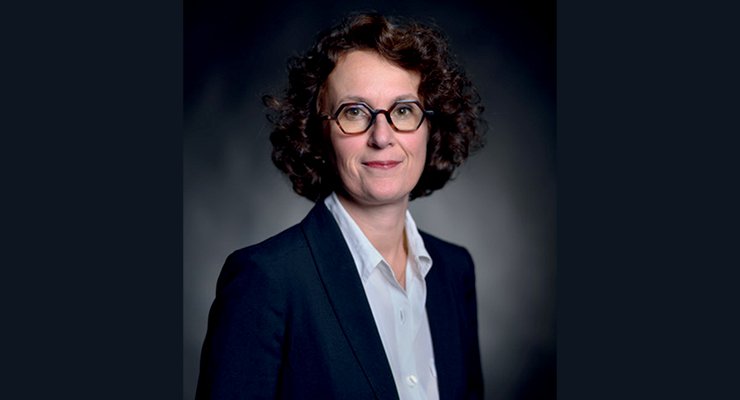Urban Engineering (GU)
Intense urban development round the world is drawing attention and to face the numerous challenges as we design smart sustainable cities for tomorrow, the UTC-GU Dept. proposes first the generalist training before providing in-depth skills and knowledge in the following specialties: building techniques, urbanism and land planning, water, waste and energy management policies and practice that take into account the technical environmental, legal, social and cultural constraints.
UTC-GU key figures
- 12 lecturer research scientists
- 100 (approx.) graduates / yr.
- 25 Master's degree / yr.
- Over 10 PhDs / yr.
- Average time to recruitment: 0,7 month
- 10% of the UTC-GU graduates work abroad
Training offer
The GU programme combines theory and practice to gain insights and better understanding of sustainable urbanism, mobility, energy and housing; the GU students integrate their visions using modern computer design and analysis packages, for urban areas, cities and conurbations. This requires data base skills, geographic data collection, modelling techniques …
GU, in its second phase, offers 2 specialties:
- … to which must be added the transverse specialty – Management of Innovative Projects (UTC-MPI)
Research
GU research is conducted by the UTC-AVENUES team, which relies on systemic analysis of urban problems, with models, methodology and software packages for aids to decision.
A first area covers the interactions and integrates environmental factors (documents, crisis management, impacts of climatic change).
A second area aims at optimising energy production and management on a single building or district scale, with the prospect of introducing renewable energies. AVENUES also has collaborative research contracts with external partners such as the French ministry in charge of ecology, the CERAMA, the City of Toulouse or the Dunkirk Port authorities.
Partnerships and valorisation
The Urban Planning and Engineering major offers an innovative teaching format based on project-based learning. Each semester, project workshops, based on real indusrtrial orders, position our student engineers as being in design offices, and are supervised for one day a week by several lecturer-cum—research scientists.
The objective is to simulate the functioning of a classic design office, to respond to an external client, to confront problems in the field of urban planning and engineering, to imagine technical, spatial and societal solutions, to provide the deliverables requested, while respecting deadlines, and at the same time encouraging autonomy, initiative and self-management.
Examples:
- Project management assistance for the rehabilitation of the village hall at Inchy en Artois (EuroWatt company);
- Project for the redevelopment of the Compiegne SNCF station area, for the design of an eco-neighbourhood combining innovation and consultation (Greater Compiègne);
- Making Longueil-Sainte-Marie a positive energy commune (part of Longueil-Sainte-Marie);
- Achieving societal acceptability of devices associated with electro-mobility (ADEME).
Placements/internships and industrial relations
During their three years’ training, UTC student-engineers majoring in GU complete two internships in companies, each lasting 24 weeks, i.e., 2 x 6 months, spread throughout the year, with internships alternating between autumn and spring sessions. These internships – real professional experiences – contribute to the integration of future graduates into the working world. The student-engineers benefit from a network of professional and institutional partners in France and around the world: major construction, equipment and technical services groups (Vinci, Eiffage, Suez), design offices providing project management assistance and project management in urban development, transport, thermal engineering, belonging to major groups and SMEs (Egis, Artélia, Ingérop, Alterea, Franck Boutté, Attitudes urbaines, Arval urbanisme, etc.), urban planning agencies, local authorities, research laboratories.
International
The UTC-GU department is engaged in five double degrees with the Ecole de Technologie Supérieure de Montréal, Polytechnique Montréal, Université du Québec à Chicoutimi, Laval University in Canada and the Escuala Colombiana de Ingenieria in Colombia. Other double degrees are under consideration. Student-engineers are encouraged to go abroad on exchange for a semester of study at a university in Europe (Germany, Belgium, Italy, Spain, Portugal, Lithuania, Poland, Sweden, etc.), America (Brazil, Mexico, Chile, Canada, United States (Rhode Island), etc.) or Asia (Singapore, PR China, Taiwan, South Korea, etc.). They also have the possibility to do one of their internships while abroad.
Professional opportunities
UTC graduates who major in GU enjoy an excellent reputation in the professional world with a capacity to adapt that enables them to apply for a wide range of jobs as design engineers and project engineers in construction, energy, transport and urban development sectors.
Nearly one half of the student engineers are hired at the end of their internship and 90% find a first professional job within a month.




